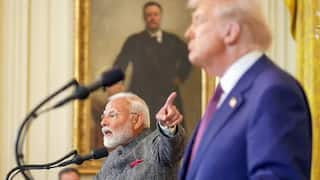Bihar Govt Moves Patna High Court Seeking Early Hearing On Caste-Based Survey: Report
The Bihar government said that no purpose would be served in keeping the matter pending and moved an Interim Application seeking an early hearing on the matter.

New Delhi: The Bihar Government moved the Patna High Court seeking an early hearing on the petitions challenging the caste-based survey in state, reported Live Law. According to the report, the Bihar government said that no purpose would be served in keeping the matter pending and moved an Interim Application seeking an early hearing on the matter.
It is be noted that hearing the petitions challenging the caste census on Thursday, the High Court, while putting an interim stay, scheduled the matter for hearing on July 3. The Bihar Government moved an Interim Application wherein it has been stated that though High Court's May 4 order is interim in nature, it has finally adjudicated the issues under consideration and thus, the matter be disposed of.
“That though the order dated May 4 is seemingly an interim order however it has finally adjudicated the issues under consideration. Hence, the writ petitions have in effect and substance been finally decided. Practically, no issue remains to be adjudicated. Hence it would be in the ends of justice that writ petitions are disposed of as no meaningful purpose would be finally in served in keeping the writ petitions pending,” the Interim Application mentions.
Notably, the matter was mentioned before the Chief Justice on Friday by Advocate General, requesting that the hearing on the matter be preponed and the pleas be finally decided.
The Advocate General contended that in its May 4 order, the High Court has in effect and substance finally decided the writ petitions by holding that the state lacks legislative competence to hold caste census and thus the executive lacks the competence to conduct caste survey.
The Advocate General also submitted that the court has also held the impugned notification infringes the right to privacy of the people of the state.
Related Video
Indore Water Crisis: 15 Dead After Drinking Contaminated Water, Situation Still Critical





































